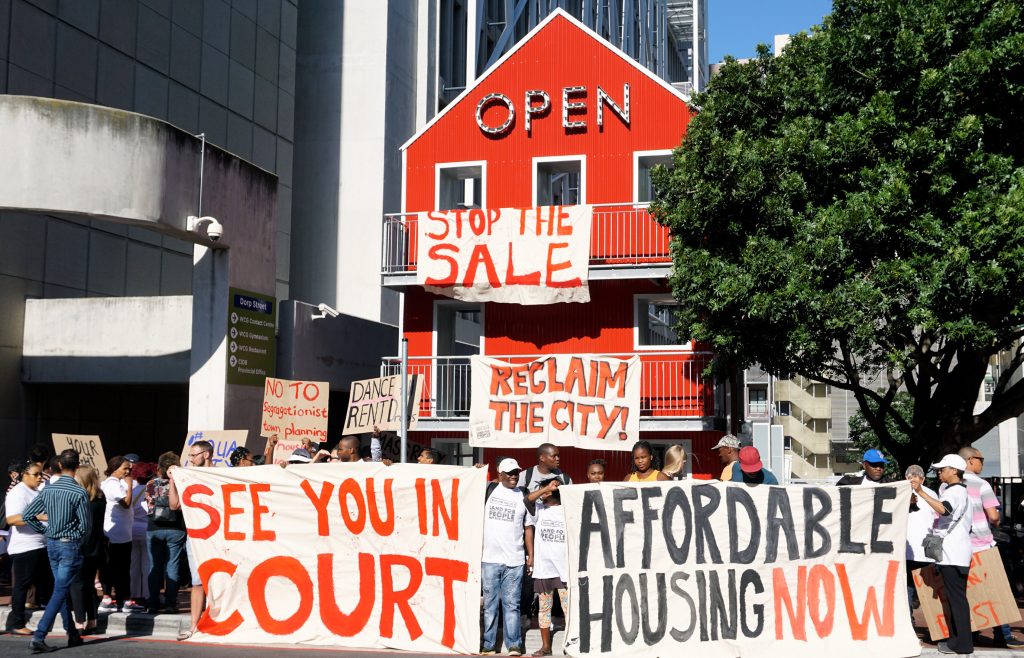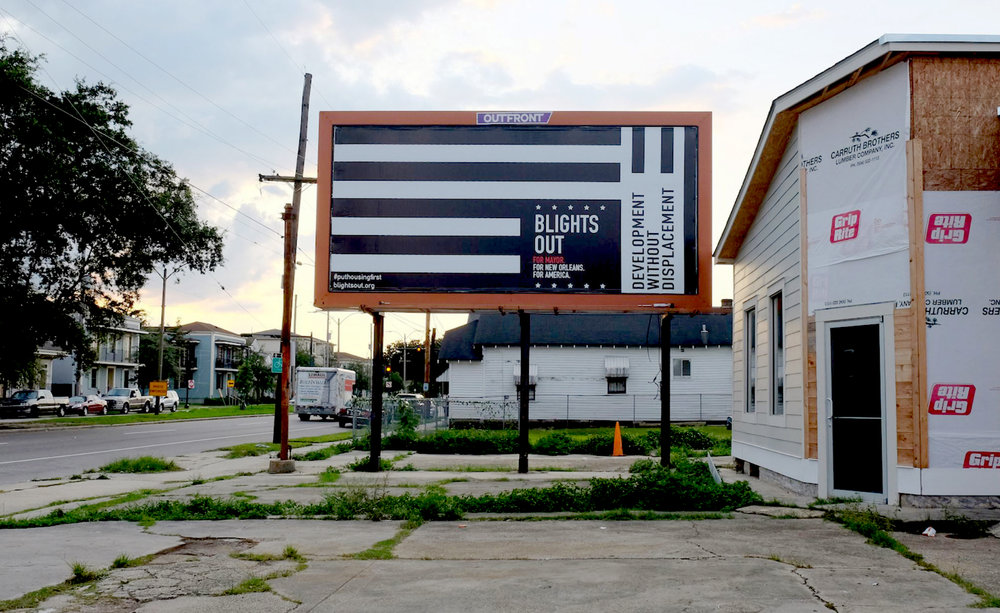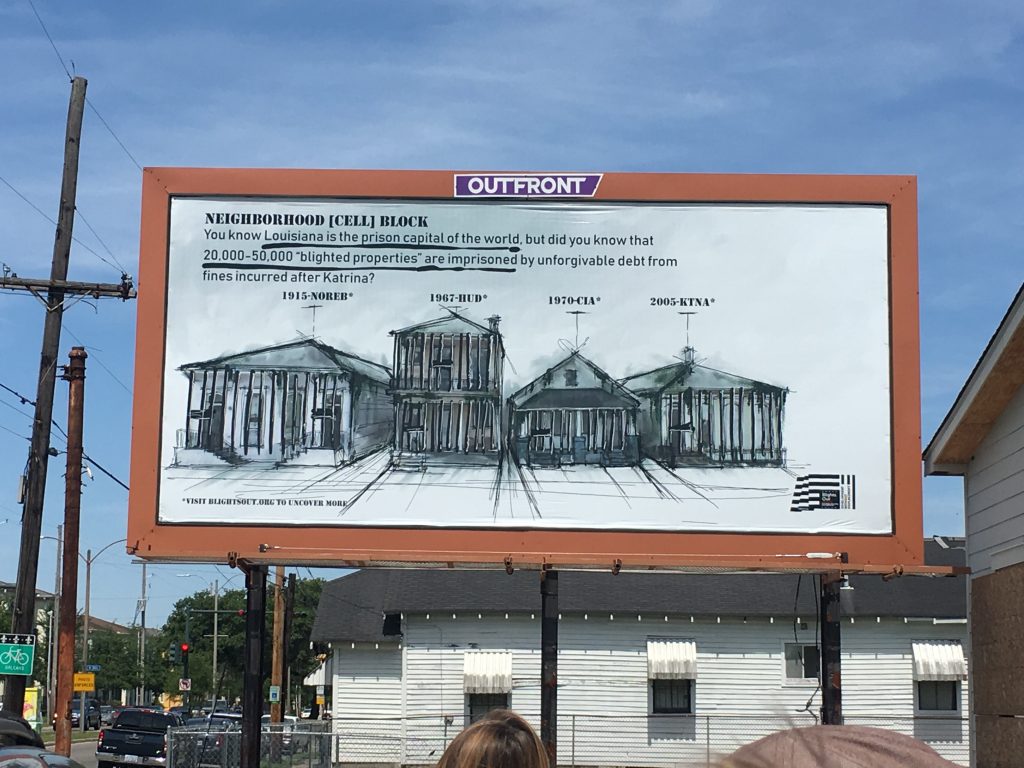EDGE Funders Alliance is very happy to present you the first article for the launch of Cities of Change Funders Collaborative. The co-authors, Peter Jenkinson and Shelagh Wright, were Facilitators and Rapporteurs to EDGE Funders Alliance Workshops in New-Orleans, and they offer us a great analysis of the current erosion of civil and social life, and how philanthropy can play an important role in shaping a “new narrative, new feminised cultures of inclusion and listening, and demonstrating that radical change is possible in people’s lives”.
Fear and Courage at the EDGE
‘The form of the state we have inherited denies the citizenry as a body politic both knowledge and power. An institutional array we do not understand and cannot control is taking us to disaster. It is time we remade it, from the ground up. This might seem unrealistic but it is necessary. And what is necessary is also possible.’ Dan Hind, Constitutional Turn: Liberty and the Cooperative State, 2018.
 In Autumn 2018, as we mark the tenth anniversary of the global financial crisis, triggered by the collapse of Lehmann Brothers, it is an important moment for us all to recollect. Back in 2008 people were talking about the urgent need for fundamental change in the system. Yet ten years later, this clearly dysfunctional and dystopian system has only got more powerful and unjust. The consequences have been seismic. The 99% are drowning whilst the 1% have acquired even bigger superyachts. According to Oxfam, another one becomes a billionnaire every two days.
In Autumn 2018, as we mark the tenth anniversary of the global financial crisis, triggered by the collapse of Lehmann Brothers, it is an important moment for us all to recollect. Back in 2008 people were talking about the urgent need for fundamental change in the system. Yet ten years later, this clearly dysfunctional and dystopian system has only got more powerful and unjust. The consequences have been seismic. The 99% are drowning whilst the 1% have acquired even bigger superyachts. According to Oxfam, another one becomes a billionnaire every two days.
We’ve witnessed a rise in malevolent nationalist populism, nativism, protectionism and xenophobia. This has been stirred by a sorry roll-call of so-called leaders employing unparalleled austerity to victimise, stigmatise and atomise those with the least. Rather than fighting the consequent rising tide of suspicion, hatred and violence in our communities, nations and continents, these antagonistic, demagogic, isolationist leaders have openly encouraged it. The yawning inequality and constant threats to free expression, to democratic process and to long-term and hard-won international alliancehave shaken our collective foundations so profoundly that many now draw parallels between our current crisis and the darkest days of the 1930s. Fear is now our global currency rather than hope. This is, in the end, a moral as much as it is a political, economic and environmental catastrophe.
For many, fighting such a tide feels difficult or at times impossible. Taming the tumult will only ever be a short-term solution, new ground needs to be made from the bottom up. We urgently need new forms, tools and tactics not just for witness and resistance, though the power of witness and resistance remains vital, but also, more constructively, for inspiration in how we can collectively create new asset-based and values-driven models that can build foundations of new systems and generate positive change, and, crucially, positive change for all.
But where might the inspiration we need come from? One answer, but not the answer, is to pursue the notion and practice of ‘under-power’ (power surging from the grassroots and the self-organisation of citizenry ultimately aiming for the complete refoundation of the system) as the foundation for fashioning systemic change.
Fast forward from 2008 and five people are eating and drinking together, one says:
‘You hear what is on the street and you realise the institutional system is not working. When you suggest solutions and make proposals you see the institutions are not receptive to them, then it’s like…reclaiming the ability to make decisions – and that sometimes leads us to enter into the system knowing ‘hope’ is a transforming element’
This is Pablo Carmona from Ahora Madrid talking with fellow activists in the short documentary Recetas Municipales (Municipal Recipes) in 2017.
Cities and sites of change
In our cities and towns all over the world many are working to reclaim their streets, neighbourhoods and communities knowing that hope is transformational. Some are occupying spaces and refusing to be displaced by rampant development and unchecked gentrification. Others are acting to hold corrupt power to account and make legal challenges. Yet others are powerfully telling these stories of hope to build unprecedented solidarities. And some are deciding to enter the system of city and local government to try to turn it on its head.
All these tactics and strategies of resistance and progression grow from their own context and sense of crisis, culture and care. They are about the practicalities of people in a particular place and time. But they share an understanding that real systemic change will not come easily from our existing institutions and power structures. They are doing things differently, involving people not usually involved, showing change not just talking about it, telling new stories in new ways and reclaiming or remaking the ability of people to decide their future. And sometimes they are supported by fearless funders who are not afraid to break the dominant frames, challenge assumptions in the system and build new rules and relationships.
At the EDGE Funders Alliance global gathering in New Orleans in March 2018, four urban activists shared their experiences, hopes, fears and frustrations with a small but committed group of funders. Xavi Ferrer from Fearless Cities and Barcelona en Comu, Mandisa Shandu and Jared Rossouw from Ndifuna Ukwazi, Capetown, Imani Jacqueline Brown from Blights Out New Orleans. Each bore testimony to their strategies and struggles. From protest, to occupation, direct action, legal challenge and taking political power, their stories moved from the streets to the system. They talked of their own communities; of taking risks, building relationships of solidarity, stepping into places of struggle, showing up in moments of both loss and triumph, of movement making and breaking the boundaries between power and people.
 While the work they are all engaged in is local to their time and place, they are all organising around a new narrative, new feminised cultures of inclusion and listening, and demonstrating that radical change is possible in people’s lives and in municipal politics too. It is quietly radical stuff and not just in theory — it’s happening in practice in towns and cities all over the world.
While the work they are all engaged in is local to their time and place, they are all organising around a new narrative, new feminised cultures of inclusion and listening, and demonstrating that radical change is possible in people’s lives and in municipal politics too. It is quietly radical stuff and not just in theory — it’s happening in practice in towns and cities all over the world.
‘This is not simply a new strategy for local governance, but rather is a path to social freedom and stateless democracy.’ (Debbie Bookchin, New Municipal Movements, ROAR 2017)
This patient, political and courageous work, humble and awe-inspiring, is built on the understanding that if we start where we live, we can shape a new world. For activist citizens, that is caring and courageously acting on real issues with real people in close proximity to their lives, creating the moral and political conditions for change.
For funders seeking to engage with system level change it is a more challenging proposition – how to carefully engage with and support system transformation through a complex combination of imagination (cultural and creative work), organising ability (participation and collaboration) and under-power (political, financial, social and cultural) that seeks to place decision-making and agency back in the hands of citizens.
This discussion came to the EDGE Alliance gathering to contribute to developing a better understanding and more productive relationship between urban activists and funders. It is clear that there needs to be a profound and irreversible shift in this relationship. We hear from friends across the world, and especially from those working at the grassroots in contexts of crisis, that trust in institutions has broken down. People are tired of well meaning but distant funders and development agencies, based in remote capital cities, demanding answers to questions that have no meaning or value for them. They are frustrated by the technocratic demands of project impacts, KPIs, targets, assessments and evaluations that only add to their lack of agency. Many funders are seen as prescriptive and extractive, obsessed with their own agendas and unprepared to co-build new solutions with each other and their so-called beneficiaries.
How do funders act in relation to these realities and new movements in a way that is both humble and awe-inspiring? Some may be able to sign up for some of the ‘projects’ of the urban activists – rehabilitating housing and contesting development interests; re-municipalising and re-localising energy and other public goods; strengthening local trade; promoting social entrepreneurship and co-operatives; supporting local initiatives like community cultural and social centres. But the real value of the work of these urban activists is invested in the integration of their values, strategies and tactics of operation; how they shape feminised, non-hierarchical, non-transactional, shared deliberation and decision-making; democratise the local and render it more responsive as a site for radical reform.
 From the EDGE toward a further shore
From the EDGE toward a further shore
The EDGE Funders Alliance is working to develop these understandings and capacities in the funding community – above all to learn to act together beyond single institutional funding to support local activity, towards solidarity with each other and with activist movements. Building trans-local learning and trans-institutional support is vital and can begin with small steps, for example, the workshop at the EDGE Alliance New Orleans gathering instigated a Barcelona/South Africa Fearless Cities Summit.
Alongside developing collaborative funds to support the systemic change work of municipal and other urban activists, there is a lot that the EDGE Alliance community itself continues to learn from developing a better and more codified knowledge-base to inform its own tactics, strategies and priorities. This community continues to work on reshaping the system of its own processes from the ground up – processes of imagination, organising and under-power to place decision-making and agency back in the hands of the people it seeks to support.
EDGE together with the emerging municipalist urban movements can build the foundations of a more imaginative progress toward a further shore in the maelstrom of fearful nationalism, xenophobia, injustice and inequality. We all need solidarity to hope and believe.
“So hope for a great sea-change
On the far side of revenge.
Believe that a further shore
Is reachable from here.
Believe in miracles
And cures and healing wells.”
Seamus Heaney, The Cure at Troy
Peter Jenkinson and Shelagh Wright, Facilitators and Rapporteurs to EDGE Funders Alliance Workshops in New-Orleans

Leave a Reply
You must be logged in to post a comment.